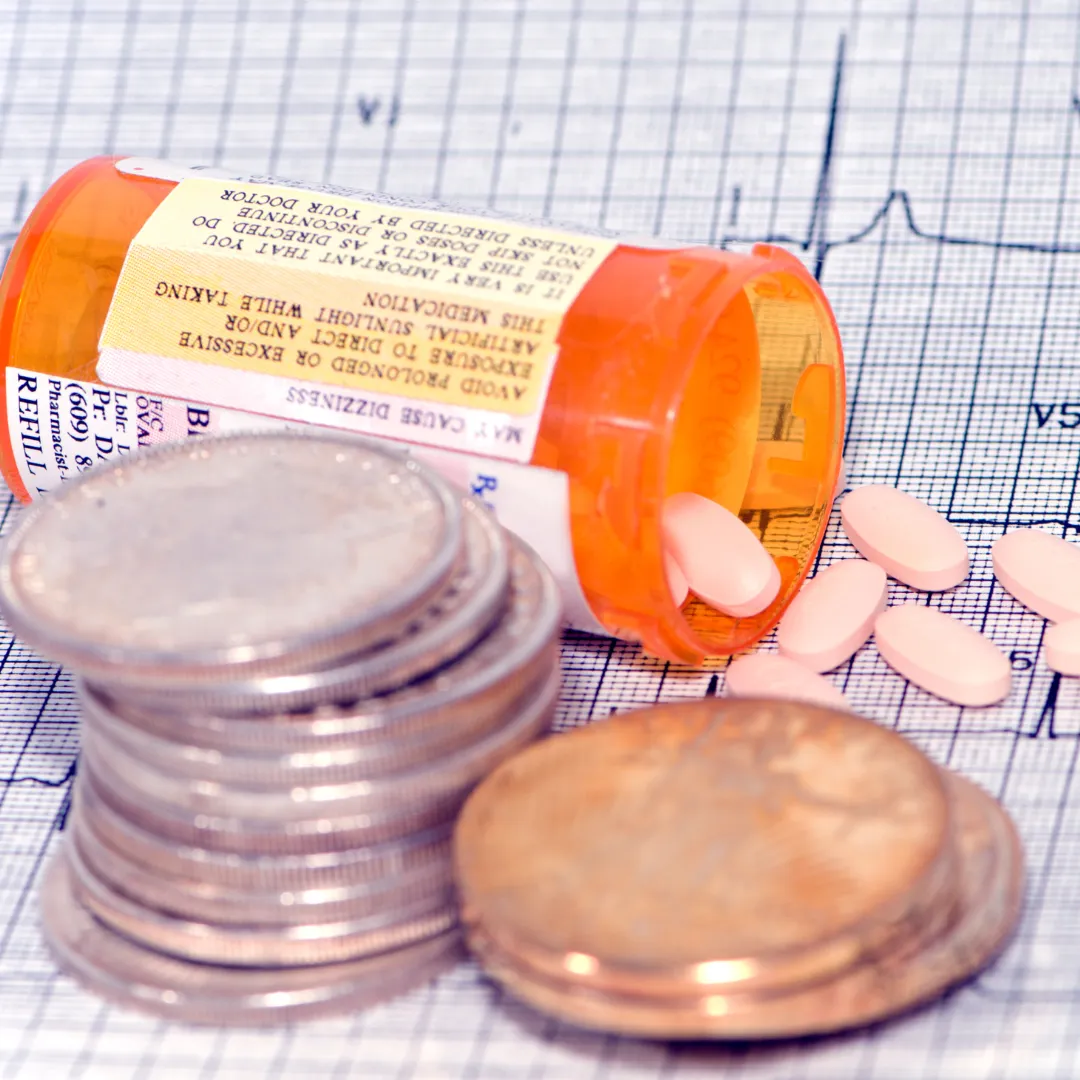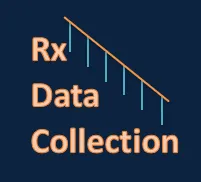Gain Transparency & Take Control of Your Pharmacy Benefit Costs
Unlock the Hidden Value of RxDC Compliance
Is Your Pharmacy Benefit Provider Delivering Real Value?
Self-funded health plans (SFHPs) now have a unique opportunity to gain full transparency into their pharmacy benefit provider’s performance. The Prescription Drug Data Collection (RxDC) program empowers SFHPs to remain compliant while uncovering the real drivers behind rising drug costs.
By partnering with an Independent Submission Entity like Rx Data Collection LLC, health plans can ensure compliance while leveraging data-driven insights to assess pharmacy benefit costs and performance.
Understanding the Pharmacy Benefit Landscape
Most SFHPs work with Pharmacy Benefit Managers (PBMs) or Carriers/Third-Party Administrators (TPAs) to manage their prescription drug benefits.
These entities claim to control costs and improve affordability, but their contracts are often complex and lack transparency.
Many health plans remain unaware of the true costs, hidden fees, and profit mechanisms behind their drug spending.
RxDC Compliance: A Tool for Transparency

RxDC compliance requires plan sponsors (or their designated representatives) to submit 10 data files annually to the Centers for Medicare & Medicaid Services (CMS). These files detail utilization, pricing, and cost trends, with much of the data coming from pharmacy benefit providers.

PBMs often claim to handle RxDC submissions as a "free service", but why do they absorb the cost? Because this data is invaluable to them. It exposes profit points, trend drivers, and hidden fees—allowing health plans to make informed decisions and negotiate better contracts.
Decoding the True Drivers of Drug Costs
RxDC data provides detailed insight into the three key factors impacting pharmacy spending:
1. Pricing: The Hidden Costs Behind Drug Prices
Pharmacy benefit providers use multiple profit mechanisms to maximize their margins. With RxDC data, plan sponsors can uncover:
Margins collected on drug prices
Retained rebates by benefit vendors
Service fees charged or paid to PBMs
Analyzing multiple years of RxDC data reveals pricing trends, helping health plans make cost-
effective decisions.


2. Utilization: What’s Really Driving Prescription Drug Use?
PBMs and drug manufacturers often blame increased utilization for rising drug costs. However, copay structures influence utilization:
Lower-tier drugs with smaller copays drive higher usage.
RxDC data reveals which drugs are most frequently used and how pricing, member cost-sharing, and rebates impact utilization.
This data exposes hidden trends and empowers plan sponsors to optimize their formularies.
3. Drug Mix: The Impact of Generics, Brands, and Specialty Drugs
RxDC data breaks down brand-name and generic drug usage, revealing which categories drive the highest costs and rebates. It also provides therapeutic class-level data, showing how different disease states influence pharmacy spending trends.

Taking Action: How to Control Drug Costs
After RxDC submissions, the next step is strategy execution. Rx Data Collection LLC helps SFHPs:
Analyze the data to identify pricing inefficiencies
Have the insights to Negotiate better contract terms during renewals
Optimize benefit design to control spending
Leverage multi-year RxDC data to track spending trends and PBM Margin changes
Why Choose Rx Data Collection LLC?
With 20+ years of industry experience, Rx Data Collection LLC is an independent RxDC Submission Entity specializing in RxDC compliance and cost management.
What We Deliver:
Complete RxDC Compliance – Hassle-free, accurate reporting
Transparent Pharmacy Benefit Analysis – Uncover hidden profit drivers
Proven Cost-Saving Strategies – Reduce drug spend without compromising care
Case Study Example:
Multi-year RxDC data often reveals that PBM margins increase significantly over the life of a contract. In year one, margins are low, but by year three, they expand dramatically, driving up costs. With the right insights, plan sponsors can renegotiate contracts before costs spiral out of control.
Start Your RxDC Journey Today
Want full visibility into your pharmacy benefit costs? Rx Data Collection LLC can help.
Contact us today: [email protected]
Schedule a consultation to discover how RxDC data can optimize your health plan’s drug
spend.
Good news: Many pharmacy benefit providers allocate contract funds to cover RxDC-related
costs. In most cases, our services are covered at no expense to the plan sponsor.
Start Your RxDC Journey Today
Stay compliant
Gain pricing transparency
Uncover hidden savings opportunities
Negotiate smarter contracts
Email us today: [email protected]
Your Independent RxDC Reporting Entity
Rx Data Collection
Ready for Simple, Money-Saving RxDC Compliance?

Premium Data Submission: $400
We submit your Plan Sponsor Premium Data to meet RxDC compliance, potentially saving you thousands on compliance fees!

Strategic Submission: $1,500
We collect, analyze, and submit your pharmacy data, providing valuable insights to help you maximize your benefits.

TPA Submission Services
We build and submit RxDC files for TPAs and Plan Sponsors with no fuss, so you can focus on what you do best.
STILL NOT SURE?
Frequently Asked Questions
You Ask, We Answer
What is RxDC compliance?
RxDC (Prescription Drug Data Collection) compliance requires health plan sponsors to submit 10 data files annually to the Centers for Medicare & Medicaid Services (CMS). These files contain medical and pharmacy spending data for the previous calendar year and must be submitted by June 1st of the following year.
Who is required to submit the data?
Health plan sponsors are responsible for submitting the required data. However, for insured health plans, the responsibility is shared with the insurance carrier. In many cases, Third-Party Administrators (TPAs) and Pharmacy Benefit Managers (PBMs) submit some or all of the data on behalf of the plan sponsor.
When did RxDC Compliance begin?
The first RxDC submissions covered Calendar Years 2020 and 2021, with reports due to CMS by December 31, 2022. Starting with Calendar Year 2022, submissions are required annually by June 1st of the following year.
Why is my Carrier/TPA requesting Employee Premium Data?
One of the required RxDC files (D1 - Premium and Life Years) requires plan sponsors to report:
The Average Monthly Premium Paid by Members
The Average Monthly Premium Paid by Employers
Since most carriers and TPAs do not bill premiums directly to members, they rely on plan sponsors to provide this information. For help calculating these amounts, click [here].
I work for a plan sponsor and have never heard of RxDC or been involved in any submissions. What should I do?
Self-funded plan sponsors who have not been involved in RxDC submissions should take the following steps:
Contact your TPA and PBM to confirm how they have managed compliance in past years.
Reach out to us at [email protected] for expert guidance and assistance.
In rare cases, an insurer may have completed the submission without contacting the plan sponsor, but it’s always best to confirm compliance in writing.
Does my health plan need to submit data if we self-administer the medical or pharmacy portion of our healthcare benefits?
Yes. All non-federal government health plans are required to comply with RxDC through annual submissions. If assistance is needed with file preparation and submission, our team at Rx Data Collection can help. Contact us at i[email protected] for support.
Is there an advantage to submitting RxDC data directly instead of relying on the PBM?
Yes. PBMs have traditionally not disclosed key data required by RxDC, such as drug margins and rebate details. Additionally, maintaining multiple years of RxDC data helps track spending trends, which is critical for controlling drug plan costs.
How can Rx Data Collection collect, analyze, and submit my data at no cost to the plan sponsor?
Many PBMs set aside contractual funds to cover external costs related to the pharmacy benefit. In most cases, Rx Data Collection can access these funds, which often go unused, to cover the full cost of RxDC compliance for the plan sponsor.
